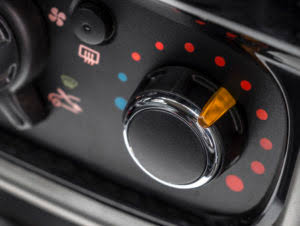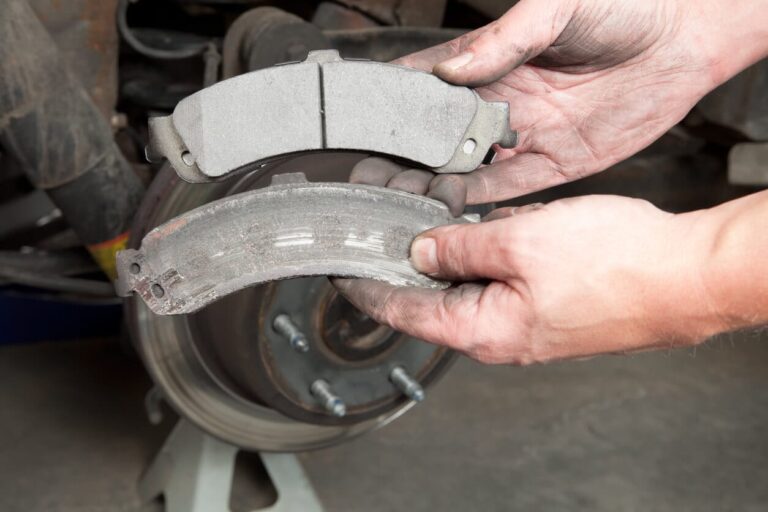Does the Heater Waste Gas in a Car?

When winter arrives and temperatures drop, the car heater becomes an essential part of our driving experience. But have you ever wondered, “Does the heater waste gas in a car?” This question is common among drivers aiming to maximize fuel efficiency while staying warm.
The short answer is: it depends on the type of car and how the heater operates. Let’s explore the relationship between your car’s heating system and fuel consumption to better understand how to use it efficiently.
How Does a Car Heater Work?
To understand whether the heater wastes gas, it’s essential to know how it operates:
1. Engine Heat Utilization
- In most traditional gasoline or diesel vehicles, the car heater uses excess heat generated by the engine.
- As the engine runs, it heats up, and coolant circulates through the engine to absorb this heat. The heater taps into this hot coolant, directing the heat to the cabin through a blower fan.
2. Electric Components
- The fan, which blows the warm air into the cabin, uses electricity from the car’s battery.
- The alternator recharges the battery, which indirectly requires fuel since it relies on the engine’s operation.
3. Electric or Hybrid Vehicles
- In electric or hybrid vehicles, the heater relies on the car’s battery power instead of engine heat. In this case, the heater can drain the battery, which may reduce the overall driving range.
Does Using the Heater Waste Gas in Gasoline or Diesel Cars?
In traditional gas or diesel vehicles, the heater itself does not directly waste gas. Here’s why:
- The heat used by the heater comes from the engine’s natural operation.
- Even if you don’t turn on the heater, the engine still generates heat.
However, there are a few exceptions:
- Idling the car to warm it up: If you start the engine and leave it idling to warm up the cabin, you’ll burn fuel without moving, which wastes gas.
- Increased alternator load: While minimal, the blower fan may slightly increase the alternator’s workload, which could result in a negligible impact on fuel consumption.
Does Using the Heater Waste Power in Electric Vehicles?
In electric or hybrid vehicles, using the heater can impact energy efficiency. Here’s how:
- The heater relies on the vehicle’s battery, which is also responsible for powering the motor.
- Running the heater continuously can reduce the driving range, especially in cold weather.
Some modern electric cars come with heat pumps, which are more energy-efficient than traditional electric heaters.
Factors That Can Affect Fuel Efficiency
1. Cold Weather Impact
In cold weather, engines take longer to reach optimal operating temperatures. During this warm-up period, fuel efficiency is naturally lower, and using the heater during this time may feel like it wastes gas.
2. Idling
Idling the car to warm up the interior is a common practice in winter, but it can significantly waste gas. Modern engines don’t need extensive idling to warm up, so driving gently after starting is more fuel-efficient.
3. Battery Load
While the heater fan’s power usage is minimal, combining it with other electrical features like defrosters, heated seats, or lights can slightly increase fuel consumption in traditional cars.
Tips to Use Your Car Heater Efficiently
1. Warm Up While Driving
- Avoid idling to warm up your car. Instead, start driving gently, allowing the engine to reach operating temperature faster.
2. Use the Recirculation Setting
- Using the air recirculation setting helps retain heat inside the cabin, reducing the workload on the fan.
3. Limit Other Electrical Features
- Minimize the use of other electrical components, like heated seats or defrosters, to reduce the load on the alternator.
4. Maintain Your Cooling System
- Regular maintenance of your coolant system ensures efficient heat transfer, helping the heater work optimally without additional strain.
5. Precondition in Electric Cars
- For EVs, precondition the cabin while the car is plugged in to avoid draining the battery while driving.
FAQs
1. Does using the heater increase gas mileage?
No, using the heater does not increase gas mileage. It uses waste heat from the engine, so it has little to no direct impact on fuel consumption.
2. Does the AC waste more gas than the heater?
Yes, air conditioning typically uses more gas than the heater because it requires the compressor to operate, which adds load to the engine.
3. Does idling to warm up the car waste gas?
Yes, idling burns fuel without moving the car. Modern engines warm up more efficiently when driven.
4. Do heated seats waste gas?
Heated seats use the car’s electrical system, which can slightly increase the alternator’s load, leading to minimal fuel consumption.
5. Do hybrid cars use gas when the heater is on?
Hybrids may rely on the gas engine to warm the coolant when using the heater in cold weather, which could slightly increase fuel usage.
Conclusion
In traditional gasoline or diesel cars, the heater does not directly waste gas because it uses heat generated by the engine. However, habits like idling or overusing electrical features can lead to inefficiencies. For electric and hybrid vehicles, the heater can reduce battery range, but efficient use can mitigate this impact.
Understanding how your car’s heater works and adopting fuel-efficient habits will help you stay warm without sacrificing performance or fuel economy.
Also Check:






One Comment